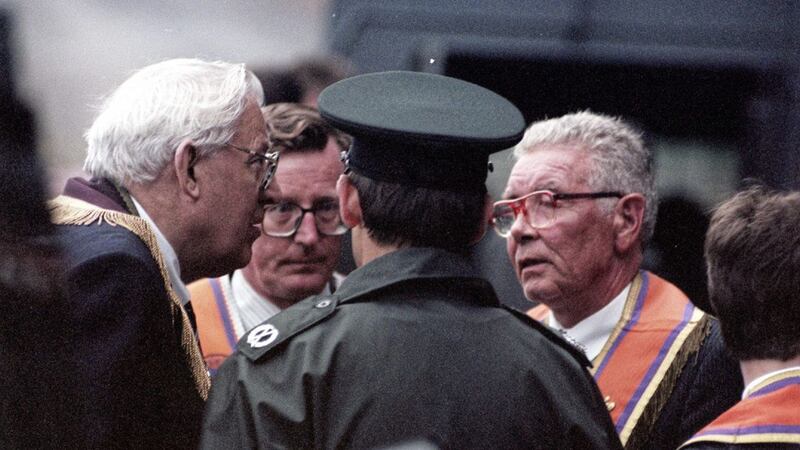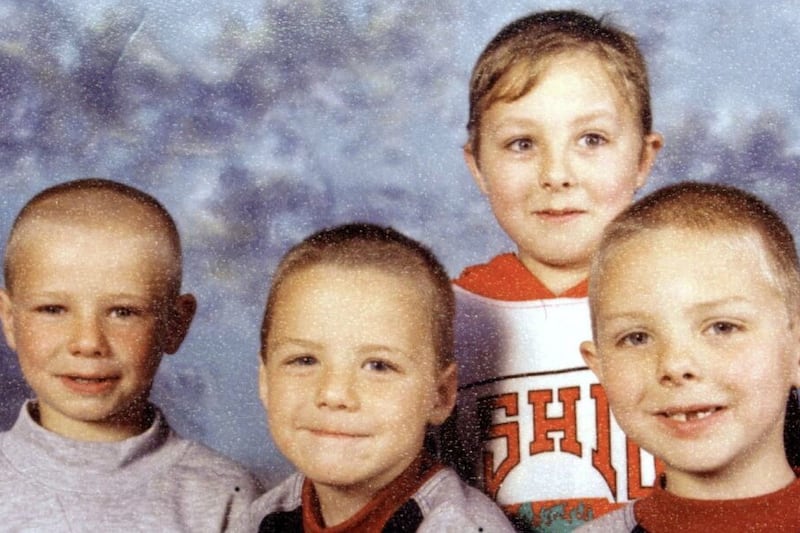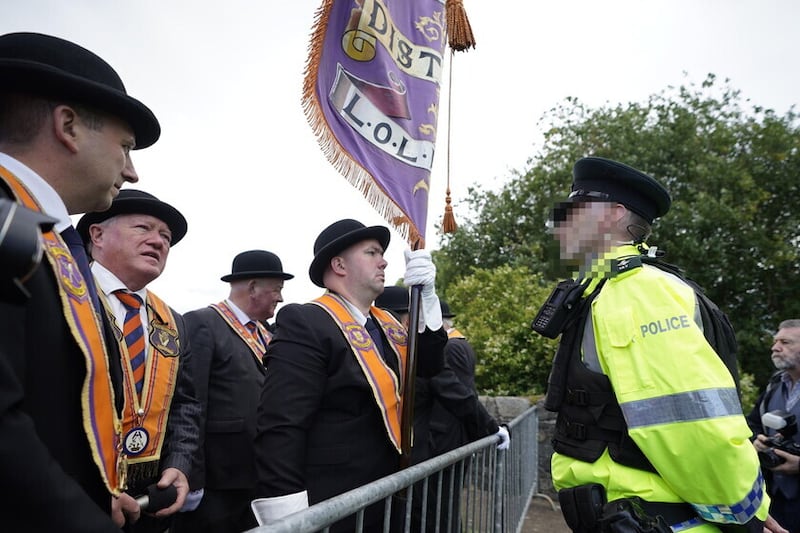A LIMITED Orange Order march through Portadown accompanied by nationalist residents might solve Drumcree dispute, it was suggested.
There was a major attempt to resolve the stand-off following violence in July 1998 which culminated in the murder of the three Quinn children by loyalists in Ballymoney, Co Antrim.
In a note dated October 16, 1998, Tony McCusker of the Central Community Relations Commission (CCRC) described a meeting attended by himself and Peter Quinn of the Parades Commission with Brendan McKenna of the Garvaghy Road residents' group.
Mr McKenna said he believed a "limited march each year for the next five years" might he acceptable to nationalists but Catholic residents "would want to walk down with the Orangemen".
Meanwhile the Northern Ireland Office seriously considered an economic package to help Portadown traders affected by the parading dispute.
In a note to Tony Blair’s adviser, Jonathan Powell, NIO Minister of State Paul Murphy referred to a possible £15 million package over three to five years.
Newly-released papers detail a meeting between NIO officials, Orangemen, and two members of the Parades Commission, Rev Roy Magee and Peter Quinn, at a meeting in Carleton Street Orange Hall in Portadown on October 17, 1998.
The Orangemen said they were determined that the 1998 parade, which had been banned by the Parades Commission, would be allowed to complete its route down Garvaghy Road.
Orange Order Grand Master Harold Gracey said that if the 1998 parade did not go down this year, there would have to be two parades next year.
"The Orange representatives said it was becoming increasingly difficult to hold back those who were intent on violence in the town," the files read.
Stephen Leech, from the NIO, said that if the Orangemen agreed to meet Garvaghy Road residents, this "would tilt the debate over the marches in their favour".
Tensions continued to run high and on October 6, 1998, RUC constable Frank O’Reilly was killed by a loyalist blast bomb in Portadown.
Prime Minister Tony Blair met Orange Order representatives in London on November 23, 1998.
Orangeman John McCrea told Mr Blair that the order acknowledged that the Good Friday Agreement had been endorsed by the public but he said the parades issue had to be settled because unrest was growing again.
Mr Gracey said that the blocking of the parade was an attack on the Protestant people all over Northern Ireland - "they had been demonised in the media after the Ballymoney murders [of the three Quinn children] and support had fallen away. But now it was returning".
He said the Portadown parade had to take place.
"Portadown was seen as a symbol by Protestants and Unionists in NI. If they lost that battle, they had no future," the file read.







